Love hurts. No, not like those cheesy Hollywood movies or romance novels. Real love is a lot messier, filthy, and painful. No matter how much you may love someone, you either get hurt or end up hurting someone you love.
Love is pain
As the old saying goes, we hurt the ones we love the most. Yes, it sounds terrible, but there is actually some science to it. When we love someone, whether it’s romantic or platonic, we let our guards down and become honest, open, and vulnerable with each other.
While this should make our relationship stronger, in reality, it creates the ground where we hurt the ones we love, whether intentionally or unintentionally.
We fight.
We argue.
We shout.
We ignore them.
We blame them for our mistakes.
Although we feel ashamed and regret our actions, our behaviour eventually creates fault lines in our relationships which leads to its premature end. In fact, researchers have found that we are more prone to show aggression to people who we love and care about the most.
According to a 2014 study, “the people that we interact with most frequently (e.g., family members, friends, romantic partners) are the most likely to make us angry,” and how we hurt people primarily “depends on our relationship with them.”
Related: 8 Things You Should Never Say To The One You Love
The researchers observed that we can hurt our loved ones directly, such as physical or verbal aggression, or indirectly such as avoiding them or complaining to others about them. “Whether the harm takes the form of words or blows, aggression is harmful to individuals and to relationships,” adds the study.
However, when you understand that unintentionally hurting someone you love is a natural part of any relationship, it can help you control your toxic behavior and be more deliberate in how you strengthen your relationship.
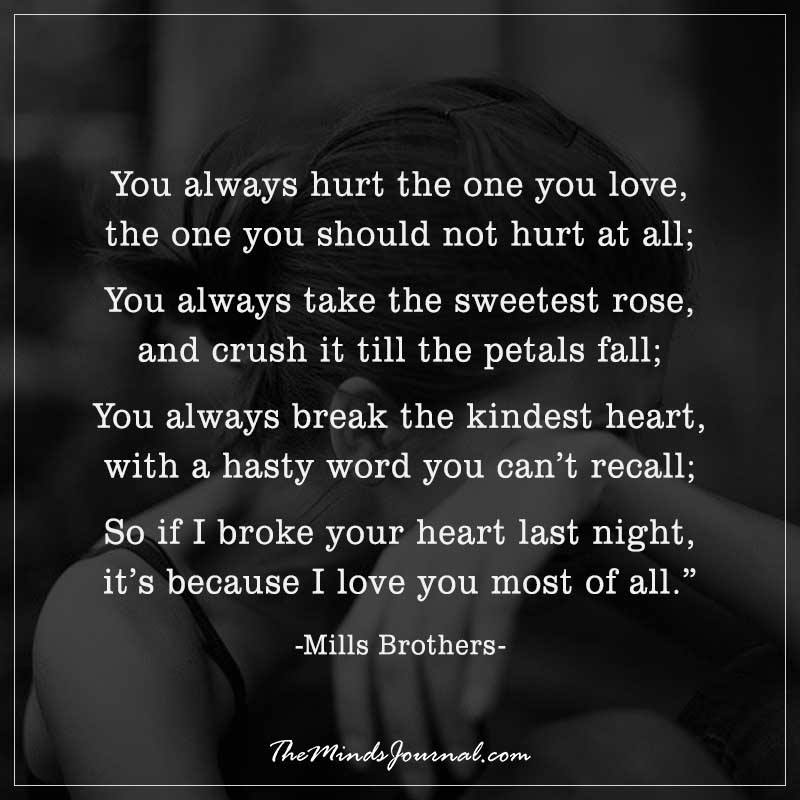
Reasons why you are hurting someone you love
Is your behavior with your loved one destroying your beautiful relationship? Do you keep hurting someone you love over and over? Then there are some ugly truths that you need to realize. Here are a few reasons we hurt the ones we love the most –
1. Unrealistic expectations
Expectations arise naturally in any relationship. But when you love someone the most, your expectations can easily turn unrealistic and unreasonable. And when those expectations are not met, you can become angry and end up hurting someone you love.
One of the main problems with these expectations is that they are often left uncommunicated as we expect our loved ones to read our mind and do exactly what we want. But as you must already know, that never happens in reality.
What we fail to realize is that these unrealistic expectations from our loved ones and relationships leads to disappointment when they are not met. We start comparing our relationship to others and forget what makes our relationship meaningful.
One 2011 study has found that when we unrealistically view our romantic partner as an ideal partner, then our marital satisfaction can decline. “People who believe their partner mirrors their ideals might only be disappointed when time later reveals how their partner falls short of these lofty standards,” adds the study.
The more valuable someone is to us, the higher our expectations are from them. So when even the slightest thing goes wrong, we feel hurt and hurt the other person in return. We need to realize that none of us are perfect and all of us are flawed. Instead of idealizing our loved ones, we need to accept them as who they are and keep our expectations reasonable.
2. Unresolved past trauma
So why do people hurt the ones they love? The reason may lie deep in our childhood experiences. Adverse childhood experiences can result in unresolved trauma which we often recreate unconsciously as adults. And as life would have it, most of us have gone through some traumatic experience as a child.
Whether you were abused, neglected, abandoned or faced any situation that left a deep scar in your mind and heart, past trauma can screw our relationships as adults. It can make us behave aggressively with our parents, friends and romantic partners. So if you are still coping with the effects of childhood trauma, it is likely that you will find yourself hurting someone you love.
Studies have shown childhood trauma can lead to interpersonal problems in adulthood. Past trauma is “related to dominant interpersonal patterns rather than submissive interpersonal patterns in adulthood,” explains researchers.
So if you were abused or hurt by your parents or others in your childhood, then you are likely to abuse your loved ones, especially your romantic partner, as an adult without even realizing it.
Sadly, our experiences shape our personality and identity, whether positively or negatively. In our adulthood, we unintentionally seek the emotions we experienced as adults. So we act and behave in ways that will make the reactions of our friends, partner or loved ones trigger our childhood memories and emotions.
However, unknowingly we hurt the ones we love the most and burn our relationships into the ground. “Cumulative childhood trauma (CCT) survivors are at a higher risk of suffering from interpersonal problems including couple dissatisfaction,” states a 2020 study.
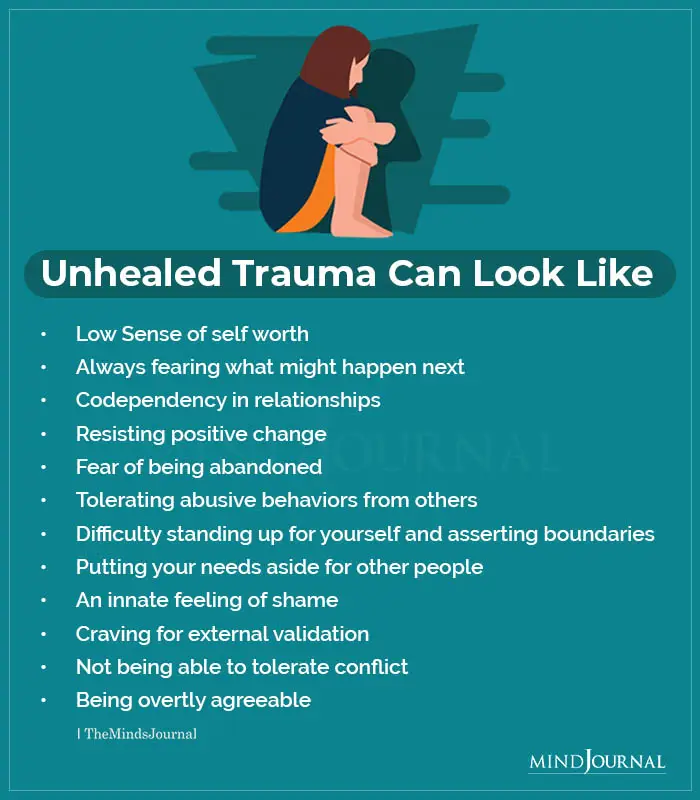
3. Lack of communication
When you have poor communication skills, then you may unwittingly end up hurting someone you love quite often. Instead of communicating negative feelings, like anger and frustration, in a healthy manner, you may express your difficult emotions in an unhealthy way.
This can lead to passive aggressive behaviour, such as cyclical arguments, giving the silent treatment or stonewalling, criticizing etc. You may also assume what your loved one may be thinking and react negatively without any actual reason.
Poor communication skills in relationships can cause unintentional emotional pain to your loved ones and significantly weaken your relationship. Researchers have found that the quality of communication between loved ones can substantially affect their judgments of relationship satisfaction.
A 2016 study revealed that “Communication occupies a central role in models of relationship deterioration, as intimate bonds are believed to remain strong to the extent that partners respond with sensitivity to one another.”
When you lack proper communication skills, you will not be able to share your feelings effectively, which will lead to confusion and chaos. If you fail to communicate your needs, expectations and wants clearly to your loved one, it will result in bitterness and resentment.
In turn, this will cause repeated arguments, criticism and belittling. When you continuously fail to communicate your feelings, you will find yourself hurting someone you love dearly.
4. Attachment style
Do you feel that you don’t deserve to be loved? Feelings of unworthiness often develop due to an unhealthy attachment style in childhood which can complicate our relationships as adults.
According to the Attachment Theory, our attachment style involves how we emotionally react and respond to others, including our interactions and behaviours with others. Our childhood attachment style can strongly influence our intimate relationships in adulthood.
The thing about love and relationships is that we always seek familiarity. Although unconsciously, we seek to be loved like we have known love in our childhood. Hence, we recreate the same relationship patterns in our adult intimate relationships that were taught by our parents or primary caregivers.
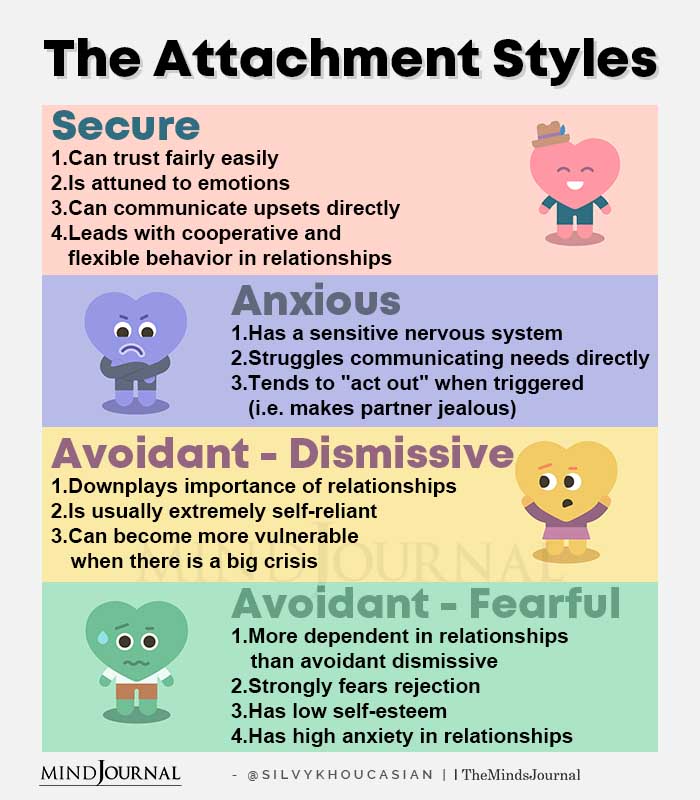
If your childhood relationships were dominated by abuse, loss or emotional pain, then it is likely that you have developed an insecure or anxious-avoidant attachment style. Research shows that adults with insecure attachment styles tend to “experience more pain” than adults with secure attachment.
Studies have also found that insecure attachment is also closely associated with low self-esteem, dysfunctional attitudes, anxiety and depression. In fact, people with “anxious-avoidant and anxious-resistant attachment styles have been reported to have behaviour problems, emotional difficulties, and social incompetence.”
So if you were abused as a child and taught to love or receive love in a specific way in your childhood, then you will seek or create the same patterns in your adult relationships. Hence, to get that familiar feeling of love, no matter how insecure or abusive it may have been, you may find yourself hurting someone you love.
When you have an unhealthy attachment style, you will repeatedly suppress your needs and emotions. However, you may still become needy, clingy or codependent in the relationship which can lead to toxic behaviours and will cause you to hurting someone you love.
Related: How Childhood Attachment Patterns Affects Adult Relationships
5. Low self-esteem & self-sabotage
When we lack self-esteem, it affects how we see ourselves and our self confidence. We feel we are inadequate, incompetent and unloved. We feel insecure and afraid of losing our loved ones or letting them down.
And out of this insecurity, toxic behaviours can arise which can make us hurt the one we love the most. When we see ourselves as unworthy, we end up sabotaging our relationships, intentionally or unintentionally.
Despite wanting to be loved and building an intimate relationship, our poor self-esteem compels us to ruin the emotional connection we share with our loved one. Self-esteem issues make you believe that you don’t deserve to be loved, and so you have difficulty accepting that your partner or loved one can have strong, positive emotions for you.
This leads to some level of distrust and so you start testing how much they actually love you. You start criticizing and abusing them frequently just to test how far you can push them.
Although you may just be looking for validation or trying to prove yourself that your loved one truly cares about you no matter how bitter things may be at the time, unintentionally you will end up hurting someone you love. Contrarily, you may actually believe that your romantic partner is too good for you and they can easily find someone better than you.
This belief that you are not good enough for them will drive you to behave aggressively in the relationship to break the emotional connection. This helps you unconsciously reaffirm what you falsely believe to be true – you’re unworthy of love.
Such toxic, manipulative & self-sabotaging behaviors are motivated by low self-esteem. It will not only hurt the person you love, but will also lead to relationship dissolution. You need to tell yourself that you are not inadequate and you are lovable. You are worthy of love and deserve to be happy. You can also choose to consult a therapist to work on your self-esteem and sense of self-worth.
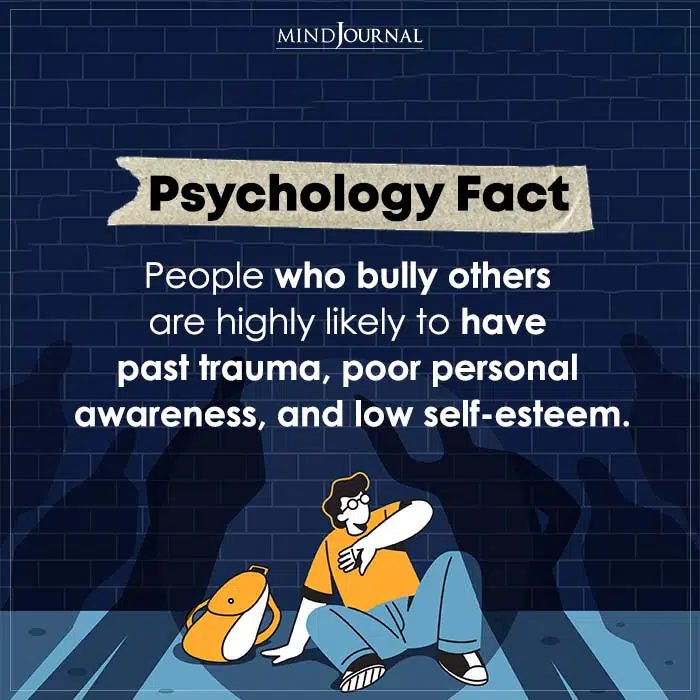
Why do we hurt the ones we love
Apart from the major reasons stated above, here are some other important factors that can also make us hurt the ones we love the most.
Take a look:
6. You are not aware that you’re hurting them
It is likely that you are too stressed or too focused on your own life & personal issues that you fail to realize that your loved one needs attention, validation and appreciation from you. Instead of showing love and care, you end up hurting someone you love without thinking.
7. You are too comfortable with them
Although a bit paradoxical, we often behave harshly with the person we feel most comfortable with. As you are comfortable with them, you show your true self instead of your best self. And our true self is often flawed and not necessarily the nicest version.
8. You take them for granted
It is possible that you find yourself hurting someone you love because they accept you as you are. However, their acceptance may make you take them for granted and so you don’t take any effort to nourish the relationship. But you need to realize that your loved one needs love and acceptance as much as you do, and so they may feel hurt.
9. You have emotional baggage
If you have been in a toxic relationship in your past, then you may be carrying those negative patterns into your current relationship. You are unable to let go of all the pain you experienced or forgive your ex, so you hurt your current partner.
Related: How To Overcome Past Relationship Trauma So It Doesn’t Destroy Your Current One
10. You lack empathy
If you are hurting someone you love repeatedly, then it is possible that you may lack empathy and compassion. As you are unable to walk in their metaphorical shoes and fail to understand their perspectives, you hurt their feelings unintentionally.
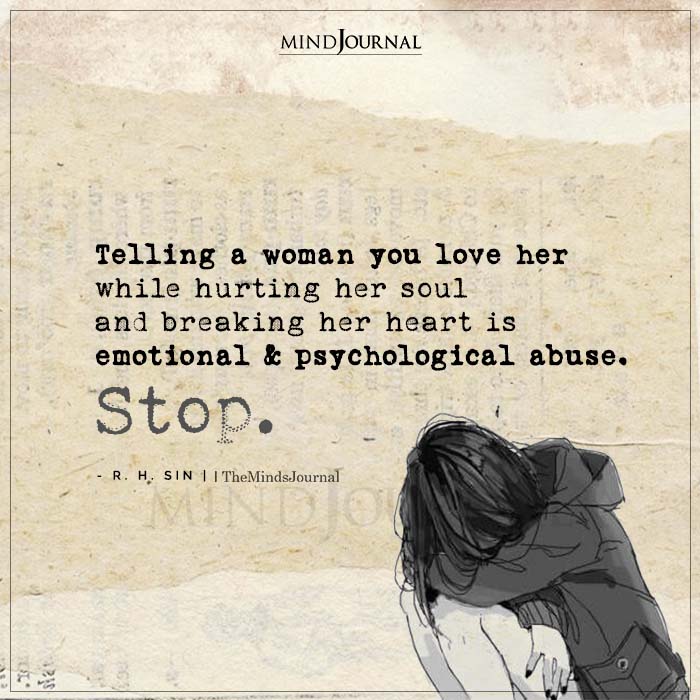
11. You behave impulsively
If you are unable to control negative behaviour and hurting others is quickly turning into a habit, then you may suffer from impulsivity. It may be due to your need for attention or feeling neglected, but you are unable to control your toxic behaviour. Impulsivity can also be associated with certain psychiatric disorders, such as ADHD, borderline personality disorder and bipolar disorder.
12. You fear commitment
You may be afraid of committing to the relationship due to various reasons, such as losing your freedom or doubting if the person is actually the right one. Although you may love the other person, you still feel something is amiss. So you may hurt them without realizing it as you keep a growing distance between each other.
13. You feel safe by hurting them
When you are afraid of neglect, abandonment or rejection from someone you love, you are likely to hurt them in order to protect yourself. By behaving aggressively or lashing out at them, you seek to get more attention and hope they will love you more.
14. You want to get out of the relationship
You may not be entirely happy with your relationship and somehow feel dissatisfied or unloved. Instead of talking to your partner honestly, you try to manipulate them so that they leave you. Hurting someone you love may be your way to end a relationship, whether knowingly or unknowingly.
15. You believe love is painful
It is likely that you grew up in a household where conflict was normal and so now you associate love with criticism, arguments and abuse. Fighting with your partner or loved one is perhaps your way of exhibiting passion and love.
16. You are controlling
You may want to dominate the relationship or you may be a controlling person. Due to this need for control, you end up intimidating, bullying or hurting someone you love.
17. You are jealous
You envy what your loved one has achieved in life and secretly you resent their success and happiness. Your jealousy may make you minimize their accomplishments or dismiss their success. This can make you hurt the person you love and ruin the relationship.
Related: Do You Crave Love? 7 Signs Of Emotional Hunger
18. You are vindictive
You may have been intentionally or unintentionally hurt by your partner, and instead of forgiving them or walking away from the relationship, you seek to take revenge by hurting them back. Your need for vengeance may drive you to exhibit toxic behaviour and hurt them back.
19. You are a toxic person
While you may at times find yourself hurting someone you love without realizing it, you may also derive pleasure by inflicting emotional pain on your loved ones. It is possible that you may be a narcissist and a toxic individual who wants to boost their ego by putting others down. Hurting your loved ones may be a strategy for you to gain control and power in the relationship.
Here’s what to do if you’re hurting someone you love
Most of the reasons mentioned here for hurting someone you love are primarily psychological, emotional or personality driven factors. Such behaviour is also associated with poor or lack of proper and open communication in the relationship. Other factors can involve codependency and lack of healthy personal boundaries.
So the first step to stop hurting someone you love is to acknowledge the issues within yourself and start working on them. If you leave these mental, emotional and personality issues unresolved, it can lead to the end of your relationship.
If you are unable to address the problems by yourself, make sure to consult a therapist or mental health professional. Therapy can help you deal with self-esteem issues and develop a more positive attitude.
You will not only see yourself in a new light, you will also take steps to care for your loved one and nourish your relationship. Talking to a licensed mental health professional can help you overcome your negative behavioural patterns and build better relationships.
We hurt ourselves by hurting the person we love

If you are reading this right now, it means you are probably not hurting someone you love intentionally. When it comes to love, we can never truly hurt the person we strive to make the happiest. Granted we can get angry at times and fight with them, we can still realize that our behaviour has hurt them. So we gain awareness and try to improve how we behave with them, one day at a time.
Related: How Unconditional Love Can Transform Your Relationship
Why? Because we can feel their emotional pain as our own. We feel ashamed and guilty. By hurting the person we love, we hurt ourselves more. And the simplest way to overcome this is to be aware of your thoughts and emotions. Look inside and develop awareness about yourself, your loved one, and your relationship.
If you truly love someone, you will always find a way to make them happy and make your relationship work.
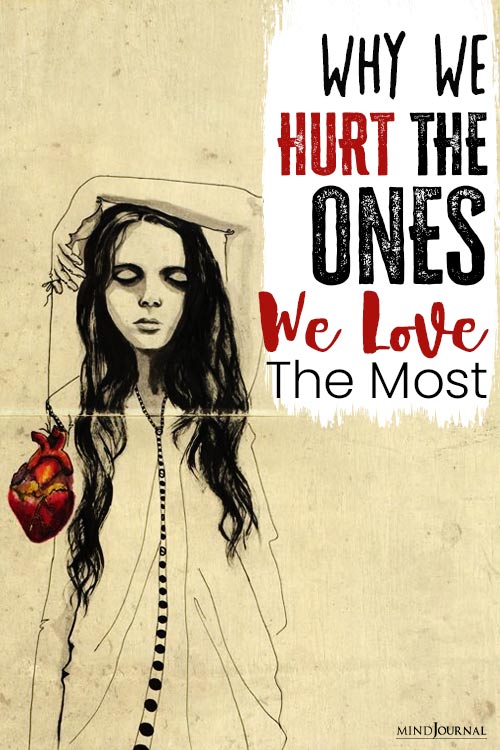
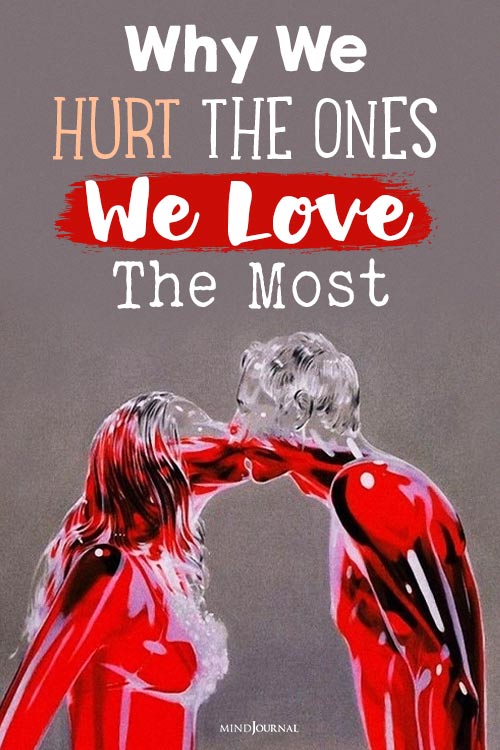
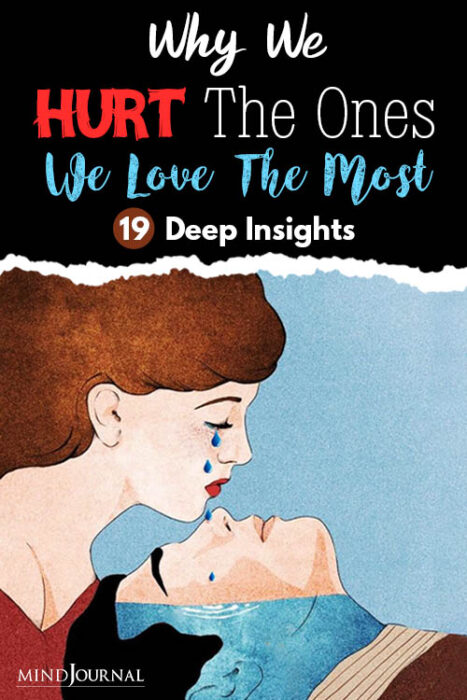
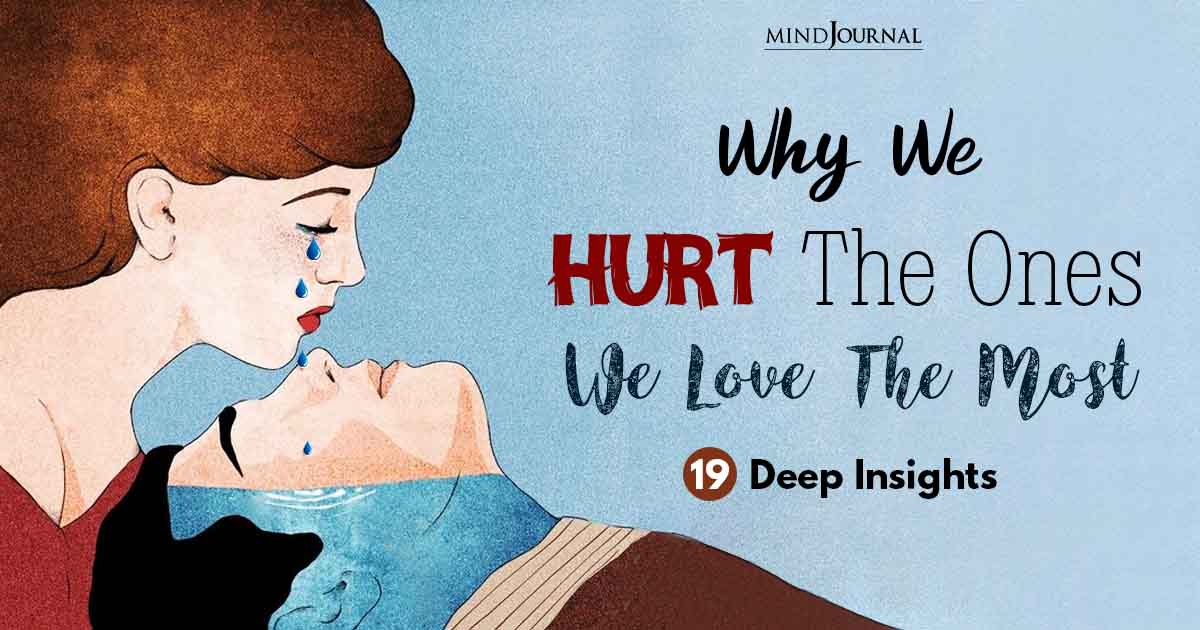
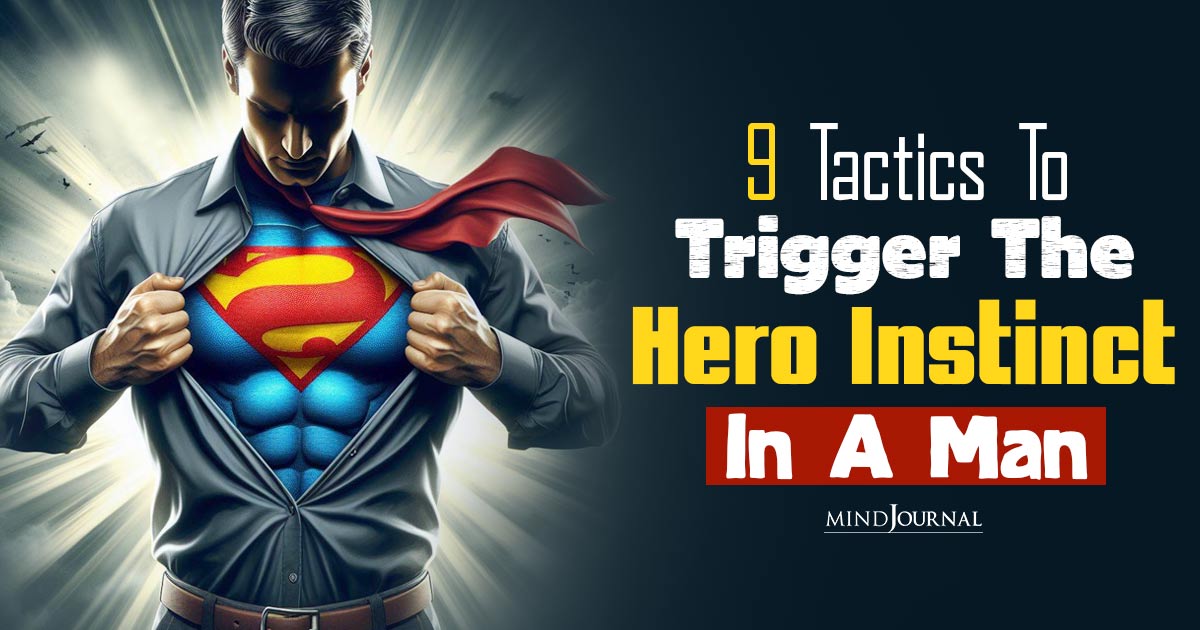
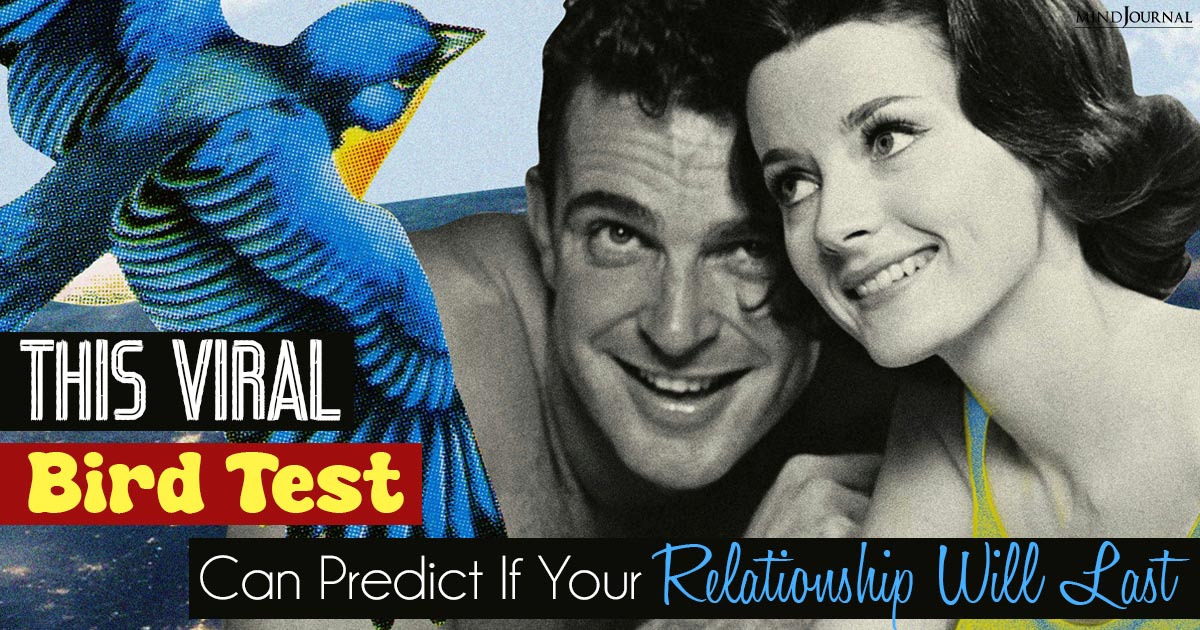
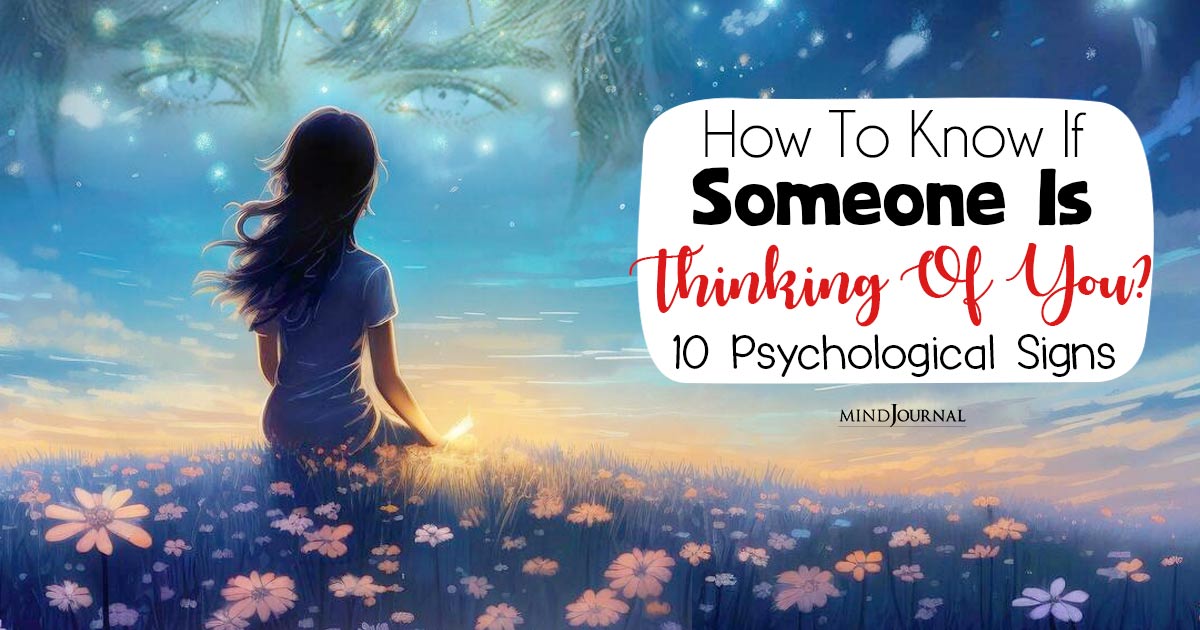
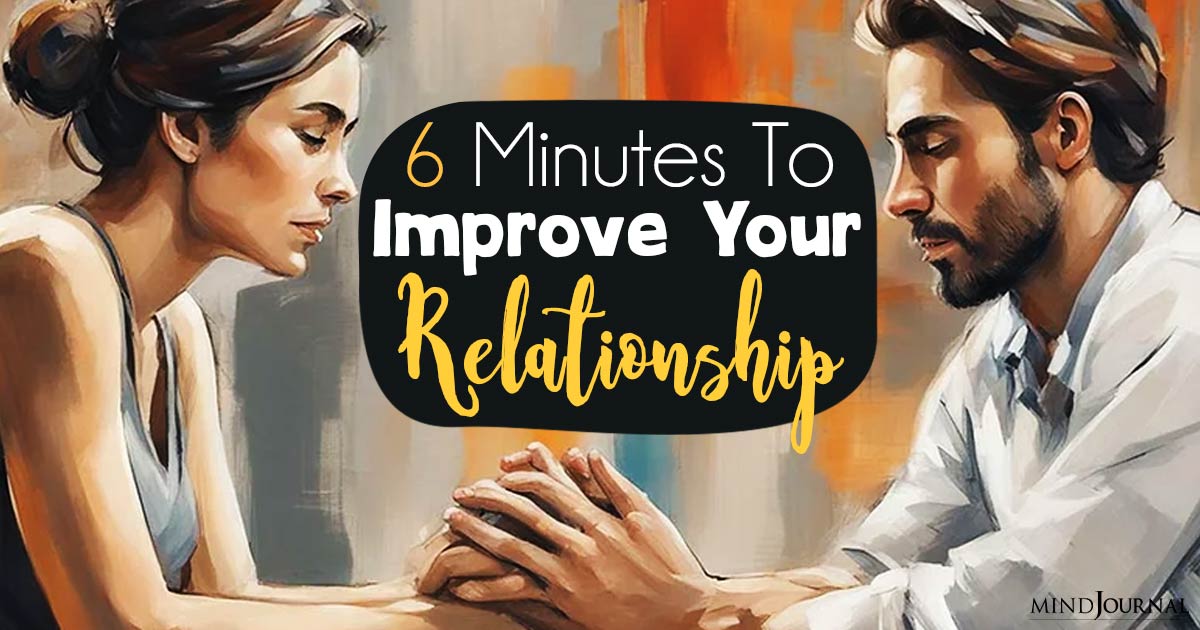
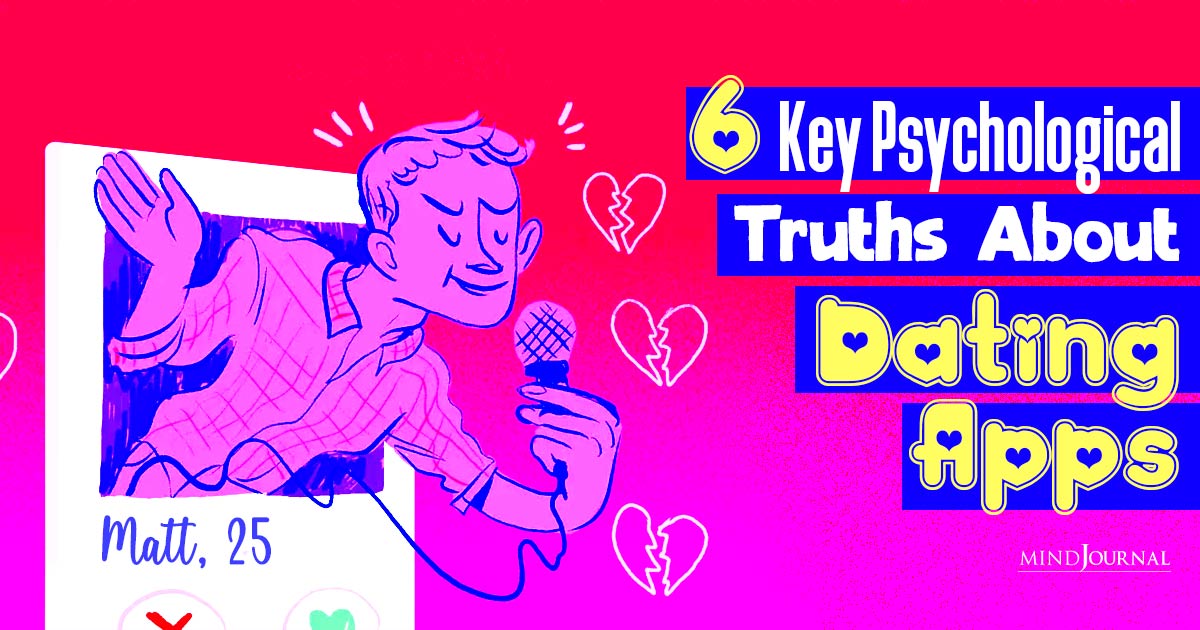
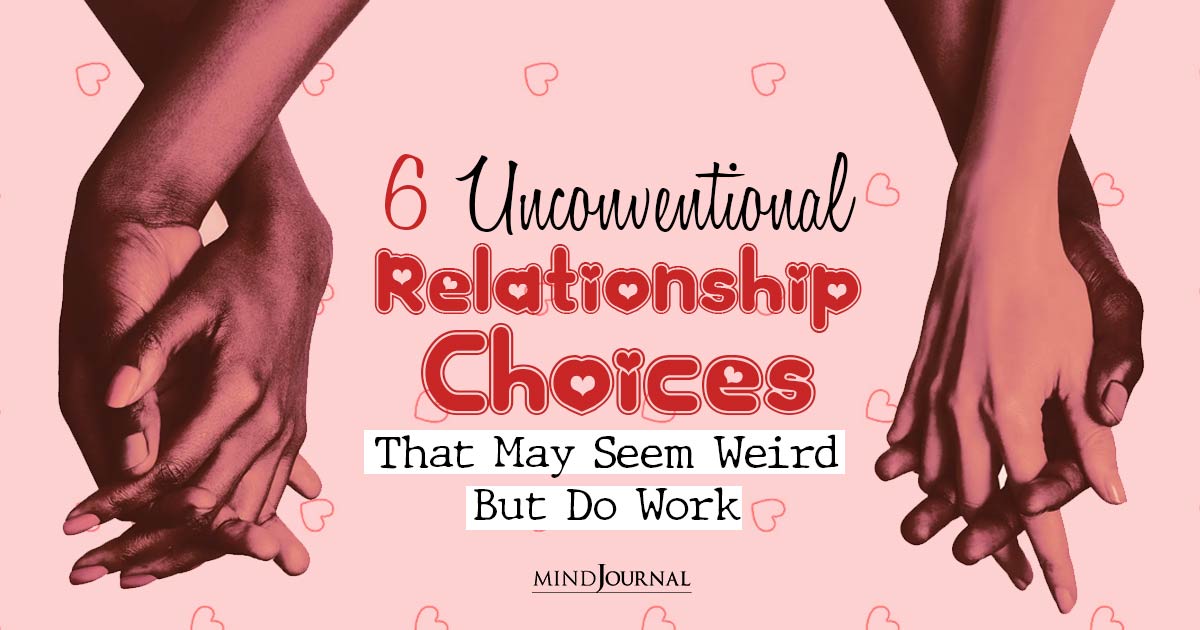
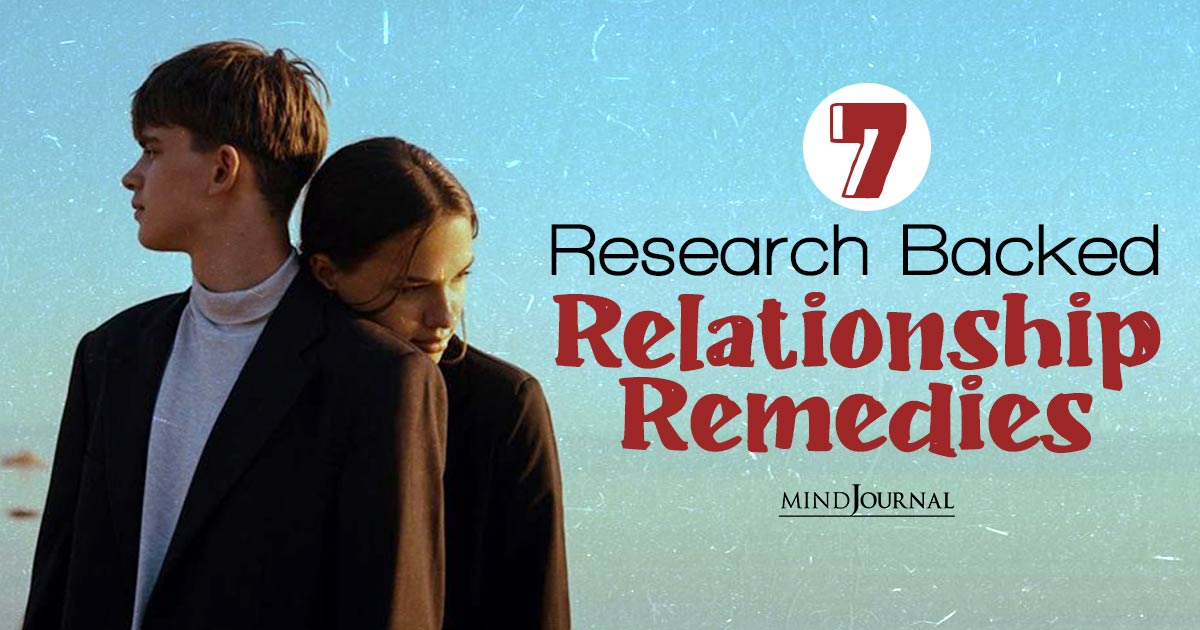
Leave a Reply
You must be logged in to post a comment.